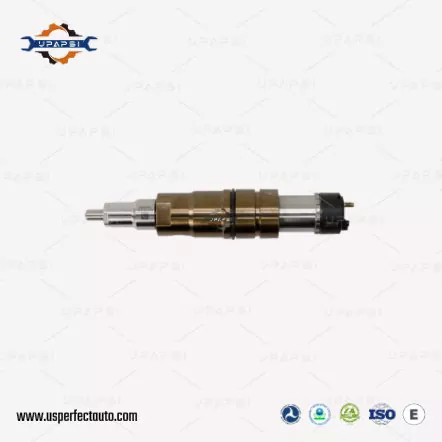Fuel Injectors: Precision Power for Modern Engines
2025-06-03
In the world of internal combustion engines, precision and efficiency are everything. Whether you’re driving a compact sedan or a high-performance sports car, one small component plays a massive role in delivering the perfect blend of power and economy: the fuel injector.

What Is a Fuel Injector?
A fuel injector is an electronically controlled valve that delivers a fine mist of fuel directly into the combustion chamber or intake manifold of an engine. This precisely measured fuel spray ensures optimal air-fuel mixture for efficient combustion.
Fuel injectors have replaced carburetors in virtually all modern vehicles due to their accuracy, responsiveness, and ability to meet increasingly strict emissions regulations.
How Fuel Injectors Work
Here’s a simplified breakdown of the process:
1. Fuel Delivery: Fuel is pressurized by the fuel pump and delivered to the injector.
2. Electronic Control: The engine control unit (ECU) determines the exact timing and duration of the injector pulse based on engine speed, load, and sensor data.
3. Injection: The injector opens momentarily to spray atomized fuel into the intake air stream or directly into the cylinder.
4. Combustion: The fuel-air mixture ignites, powering the engine.
This entire cycle happens thousands of times per minute, with remarkable accuracy.
Types of Fuel Injectors
Fuel injectors can vary depending on the engine design and fuel system:
Port Fuel Injectors (PFI): Spray fuel into the intake manifold before the intake valve.
Direct Fuel Injectors (GDI): Deliver fuel directly into the combustion chamber for improved power and efficiency.
Throttle Body Injectors (TBI): Positioned above the throttle plate, used in older fuel-injected engines.
Benefits of Fuel Injection
Improved Fuel Efficiency: Precise fuel delivery reduces waste.
Lower Emissions: Cleaner combustion helps meet environmental standards.
Increased Power: Optimal air-fuel mixture maximizes engine performance.
Better Starting and Idling: Smooth cold starts and consistent engine idle.
Signs of a Failing Fuel Injector
A malfunctioning injector can lead to engine performance issues. Common symptoms include:
Rough idling or misfiring
Decreased fuel economy
Poor acceleration
Check Engine Light (CEL)
Strong fuel odor or leaking injectors
Maintenance Tips
Use quality fuel: Prevents deposit build-up in injectors.
Add injector cleaner: Periodic use of fuel system cleaners can help maintain flow.
Check regularly: Especially if the vehicle exhibits performance issues.
Final Thoughts
While often overlooked, the fuel injector is a critical component that bridges fuel delivery and engine performance. As technology advances, modern injectors are becoming even more precise, reliable, and efficient.


